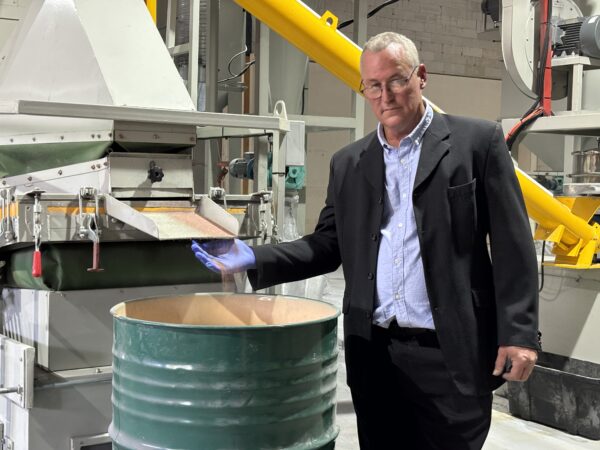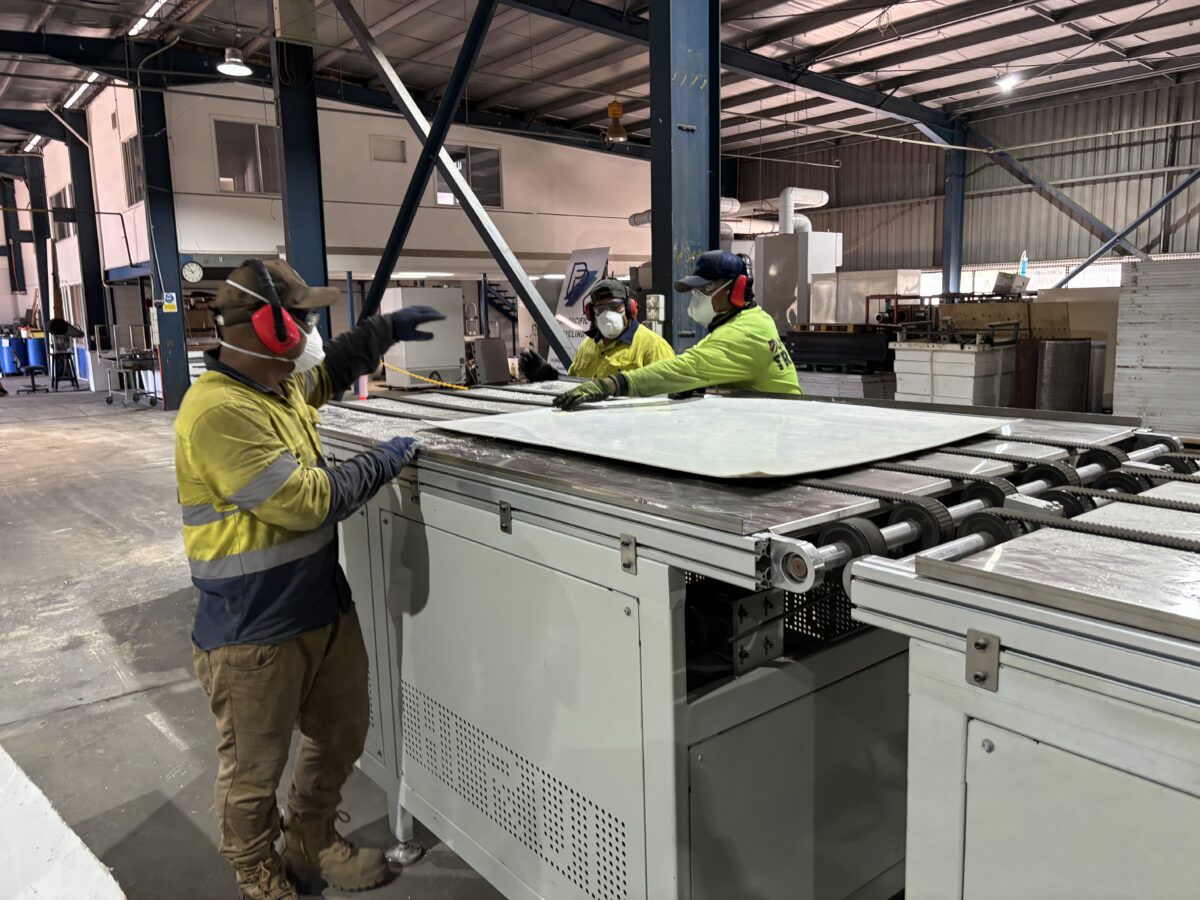Brisbane-headquartered Pan Pacific Recycling (PPR) has begun materials recovery from end-of-life solar panels, located at its Crestmead plant, 32 kilometres south of Brisbane, as part of a Smart Energy Council (SEC) stewardship pilot.
The pilot is a recycling, reuse and recovery program, aimed at keeping 26 tonnes of solar panel waste out of landfill, calling for 30,000 end-of-life panels to be delivered to six collection sites, in collaboration with companies like PPR.
After starting commercial operation on 7 October 2024, PPR Director John Hill told pv magazine that interest in the plant had skyrocketed and comes from all sectors of the industry, including home owners tasked with disposing of their own panels.
“We’ve been operating in test mode for about two months, but we’ve launched now and capable of processing 240,000 panels a year,” Hill said.
Once panels are disassembled, separated and various components like glass, metals and semiconductors recycled, with 99% of materials retrieved and ready for market.
“We do have evolving markets because obviously the materials that we produce are in wide demand on the international market, so it will evolve around what we produce, but we expect the market will broaden and increase the value of these materials,” he said.

Image: Smart Energy Council
The Australian Centre for Advanced Photovoltaics (ACAPs) Solar Panel End of Life 2024 study estimates $22.60 (USD 17.94) worth of materials can be recovered from a typical 20 kilogram solar panel, achieving a material value of over $1,000 per tonne of panels, and that total material value from all end-of-life solar panels generated in Australia by 2033 will exceed $1 billion dollars.
“Since we’ve launched, my phone literally has not stopped ringing and not just from large corporations and manufacturers, but also people who’ve had panels placed on their roof and installers have said their end-of-life panels are their problem,” Hill said.
As the overseas market has diminished installers have few options left for disposing of panels and doing so in landfills is banned in Victoria, South Australia, Queensland and the ACT, but Hill believes in the next decade end-of-life solar panel recycling will grow exponentially in Australia.
“I think we could become world leaders in the industry, if its regulated right, and if the money could be put forward for the research and development to make it more viable,” he said.
ACAP’s study forecasts annual solar waste will increase nationwide from 2024’s 280,000 tonnes to 1 million tonnes by 2034 and 2035, with more than 80% coming from small-scale distributed roof top solar systems.
Hill said PPR’s plan is to grow, and they have a grant application with the Queensland government to initially expand the Crestmead plant plus a meeting with the West Australian (WA) government to propose a ‘lift and shift’ of their plant as a ready-made solution.
Smart Energy Council (SEC) Stewardship Program Manager Robyn Cowie told pv magazine that the SEC recognises WA faces a similar challenge to Queensland, with around 600,000 panels due to be commissioned each year in WA.
“It’s also a state with a vast land mass which brings in the logistical complexities of moving panels around and getting them to a central recycler,” Cowie said.
“Our Queensland pilot provides a blueprint of how to solve those issues in the West and will be a focal point at the SEC’s WA Renewables and Clean Exports Summit on 10 October.”
This content is protected by copyright and may not be reused. If you want to cooperate with us and would like to reuse some of our content, please contact: editors@pv-magazine.com.








By submitting this form you agree to pv magazine using your data for the purposes of publishing your comment.
Your personal data will only be disclosed or otherwise transmitted to third parties for the purposes of spam filtering or if this is necessary for technical maintenance of the website. Any other transfer to third parties will not take place unless this is justified on the basis of applicable data protection regulations or if pv magazine is legally obliged to do so.
You may revoke this consent at any time with effect for the future, in which case your personal data will be deleted immediately. Otherwise, your data will be deleted if pv magazine has processed your request or the purpose of data storage is fulfilled.
Further information on data privacy can be found in our Data Protection Policy.